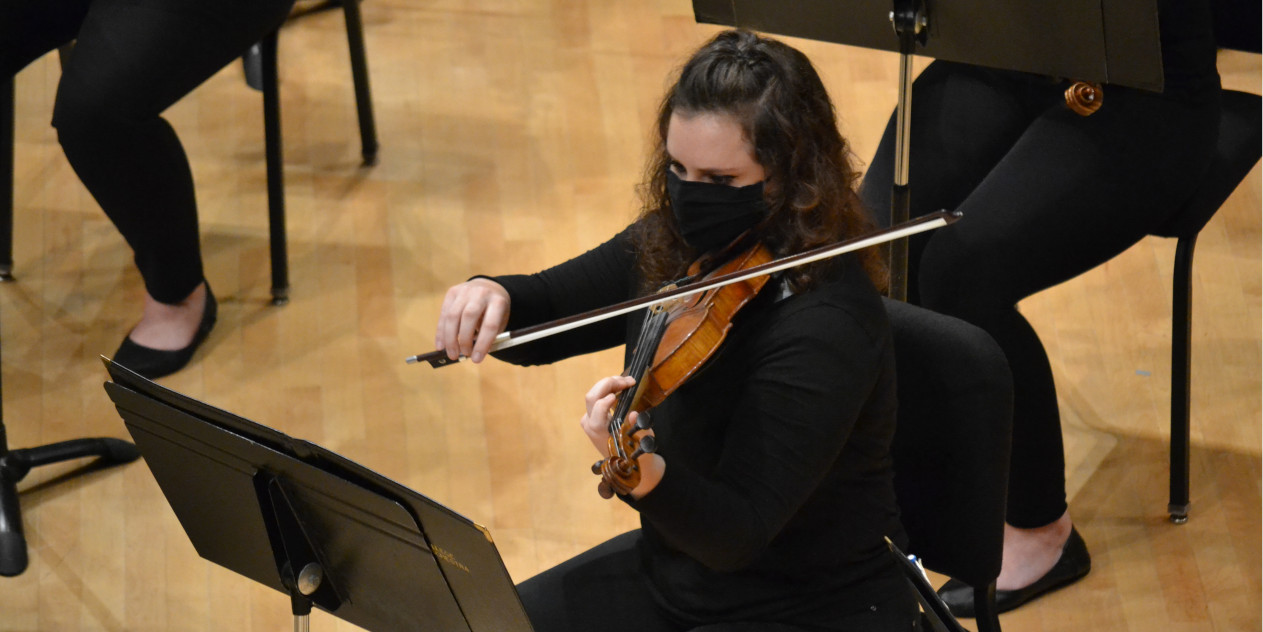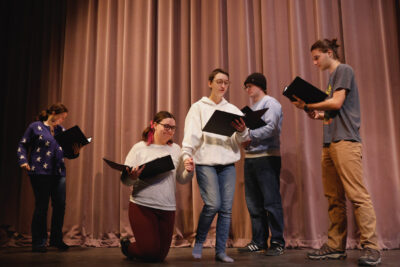Goshen College violin and viola students will present a studio recital featuring works by American composers on Friday, Nov. 13.
Solomia Soroka, professor of music, chose to make American music the focus of the recital for several reasons, one of which is her passion for American works.“My interest in American music started quite a few years ago,” she said. “When I dug into this subject, I found that there is so much American music that is generally not well-known by American audiences or programmed by orchestras. And so I was interested in this phenomenon—why do Americans still prefer European music?”
Soroka’s choice of theme for the studio recital was also inspired by the state of our country and by what she feels to be a lack of unity among Americans.
“It’s been a turbulent time for America as a nation,” she said. “We’ve discovered [that] maybe we’re not as united as we should be.”
Soroka looked for music that reflects a wide range of identities and encourages unity among Americans.
“We wanted to show through music that we are all Americans,” she said. “We’re all different, we’re all so diverse, but we’re all Americans. So we chose music by African-American composers, lesser-known or forgotten composers, woman composers, immigrant composers … we just wanted to present this diverse America.”
Soroka’s efforts in researching composers and pieces that should be represented in music have not gone unnoticed by her students, who echo her sentiments regarding the importance of diverse repertoire.
Alena Miller, a sophomore Spanish and secondary education double major and a student in Soroka’s studio, believes that classical music, in particular, needs to create more space for minority composers.
“It is important for everyone to be able to see themselves reflected in the music they hear,” she said. “I feel that classical music often focuses mainly on the traditional male European composers like Bach, Mozart or Beethoven. While these composers are important, so are many others who have contributed to the musical landscape and just don’t get the recognition they deserve, whether it be because of their class, race or gender.”
Abigail Greaser, a senior theater and music double major, believes that lack of representation in repertoire “contributes to a lot of the subtle internalized prejudice of our culture.”
“It is important that our perception of American music is not limited and represents the variety of experiences that make up American composers,” she said.
Joel Yoder, a junior chemistry and biochemistry double major who plays violin, shares Miller’s and Greaser’s concerns regarding representation in music. He appreciates the ways in which Goshen College integrates music from other cultures into the repertoire for ensembles like Voices of the Earth, but he would like to see even more effort from the music department.
“It would be nice to hear more indigenous music and music from South America and east Asia,” he said. “On the instrumental side of things, I think Solomia has the right idea of holding a studio recital with all non-standard repertoire. I would love to see that become a more common occurrence in the music department.”
Greaser agrees that there is room for growth in the department and the college as an institution.
“Goshen College needs to actively show the student body that Black lives matter and to support students of color, female students, students that are immigrants or children of immigrants and our LGBTQ+ students,” she said. “One way Goshen College can show that support is by making sure they are represented in the repertoire that is chosen.”
Goshen College students and employees can attend the string studio recital for free at 7:30 p.m. Friday in Rieth Recital Hall or via the Goshen College livestream.



